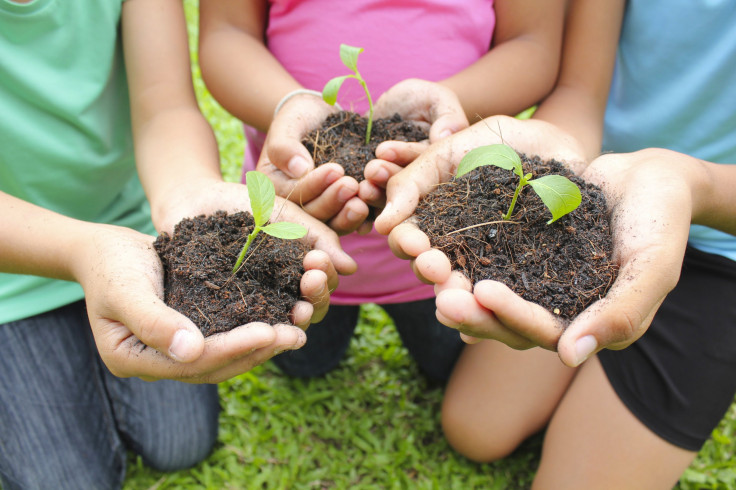Sensory Garden: Special Needs Children Flourish After Feeling, Hearing, And Smelling Nature

Everyone loves a good walk through the garden, but for children with disabilities, gardens are not only relaxing but also can contribute to their development. Sensory gardens are specifically designed to stimulate the senses of those with handicaps. Here, visitors are invited to feel, smell, and even taste the plants around them, and studies show this interaction significantly helps increase disabled children’s awareness of the world around them.
There are copious amounts of empirical information pointing out the positive effects of regular garden visitation. A 2009 study from the University of Illinois points out how children with attention deficits concentrate better after walking through a park. Another study suggested that children who were exposed to gardens had an increased willingness to eat fruits and vegetables.
Sensory gardens aren’t all that different from ordinary gardens. They are described as spaces where individuals can be immersed in scents, textures, and colors of the surrounding plants. Visitors may be further stimulated with the addition of wind chimes, swings, and hammocks. A 2008 study found that, for children with learning disabilities, these gardens can increase the nonverbal communication, teach how to participate in a cooperative effort, and help to form positive relationships with adults.
Daily Beast journalist Elizabeth Picciuto visited a sensory garden at Stephen Knoll’s school in Maryland and was able to see firsthand how much the open space meant to the school’s handicapped students.
“Just a few years ago, I hate to admit that in my total ignorance of disability, I would have assumed that these boys were barely aware of their environments. More attuned, I now see how all three boys become absorbed in their plants’ progress,” she wrote.
The Stephen Knolls School garden is described as a well-kept greenhouse, carefully decorated with bright flowers, seashells, birdhouses, and colored benches. Here, the students gather to learn, relax, and remember those who have passed.
“Our sensory systems seek out intact sensory experiences,” explained Naomi Sachs, founding director of The Therapeutic Landscapes Network.
Along with stimulating senses and calming nerves, the garden also allows disabled children to take certain risks and challenges that they wouldn’t be able to in a normal setting.
“We live in a risk averse society. Kids with disabilities are especially protected (sometimes overprotected) from risk,” Sachs said.
The garden’s paths allow the students to walk on decorative stepping stones equipped with soft surfaces in case they were to fall.
Published by Medicaldaily.com



























